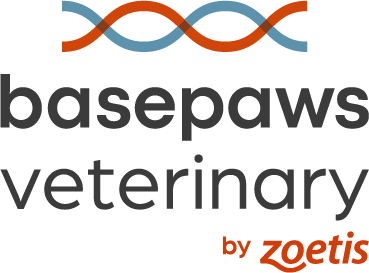
- dvm360 December 2022
- Volume 53
- Issue 12
- Pages: 35
Say yes to annual wellness diagnostics and oral microbiome tests

One clinician’s approach to persuading clients to be proactive with preventive diagnostics
As a feline practitioner, I see a lot of sick cats. The toughest cases always involve those felines whose owners say they “haven’t been to a vet in years and recently stopped eating.” We run lab work, and, congratulations, your pet is in stage 4 renal failure and needs a dental. How do you know which disease came first? Which is the bigger problem? It’s a tough reality check knowing that if they had only brought their cat in for routine physical exams and annual wellness diagnostics, we could have caught the chronic kidney disease (CKD) sooner.
We all understand the benefits of annual diagnostic testing: It establishes healthy baselines, allows us to monitor trends in organ function, and helps us catch diseases earlier.1 But how do you convince owners of its importance? What if there were another type of screening test that didn’t involve venipuncture that might increase compliance?
When first implementing annual wellness bloodwork in our clinic, the concept was simple. The owner needed to understand the benefit of early detection of disease, and it had to be affordable. The conversation started with the receptionist: “It looks like Fluffy is due for his annual exam, vaccinations, and annual diagnostics.” The day of the appointment, the technician would explain, “Fluffy is due for his annual exam, rabies vaccine, and annual diagnostics. Dr Saffire will talk about what diagnostics are recommended based on Fluffy’s age and exam findings.”
Then it’s my turn: “Fluffy looks great on exam today. I see that Fluffy is due for a vaccine, but I would also like to talk to you about performing wellness labs. He is another year older, and a lot can change in a year. I’d like to run our senior wellness panel, which will allow me to gather information on his overall health status, including information on his red and white blood cells, blood sugar, kidneys, liver, and thyroid. A urine sample will also be collected. Are you OK with this?” If the owner consents, labs are performed. I follow up each visit with a detailed summary of results so the owner understands the value in what was done.
Our most recent statistics for compliance for wellness labs at annual exams was 86%. The other 14% declined because their cat recently had labs performed or the owners weren’t prepared for the additional cost. My response? “That’s no problem; I understand you weren’t prepared for this additional expense today. Since Fluffy is otherwise doing well, I would be OK skipping labs this year, but I’m going to create a reminder so that you can plan to have it done next year.” The following year, those owners will usually say yes.
CKD and periodontal disease are common in feline medicine, and the 2 often present together.2 Traditional renal biomarkers of CKD in feline patients are important but can have limitations.3 Other risk assessment tests for CKD and periodontal disease are being developed, including a noninvasive, oral swab-based screening tool that evaluates genetic predispositions, health markers, and oral microbiome.4-6
The importance of wellness testing in veterinary medicine cannot be understated. It enables early disease detection, leading to earlier treatment and, hopefully, longer life expectancy. Wouldn’t it also be helpful to have the information that a patient is more at risk of developing certain diseases to confirm the importance of annual monitoring to clients? Stay tuned as this research unfolds, and in the meantime, train your staff to discuss annual wellness diagnostics with your clients at every point of contact.
Ashlie Saffire, DVM, DABVP (feline), is a feline medicine specialist and serves on the board of directors for the American Association of Feline Practitioners. She is a tutor for the University of Sydney’s Feline Medicine Distance Education Course and serves as ABVP Feline Residency adviser at Cats Only Veterinary Clinic in Columbus, Ohio.
References
- Ray M, Carney HC, Boynton B, et al. 2021 AAFP Feline Senior Care Guidelines. J Feline Med Surg. 2021;23(7):613-638. doi:10.1177/1098612X211021538
- Trevejo RT, Lefebvre SL, Yang M, Rhoads C, Goldstein G, Lund EM. Survival analysis to evaluate associations between periodontal disease and the risk of development of chronic azotemic kidney disease in cats evaluated at primary care veterinary hospitals. J Am Vet Med Assoc. 2018;252(6):710-720. doi:10.2460/javma.252.6.710
- Kongtasai, T, Paepe, D, Meyer, E, et al. Renal biomarkers in cats: a review of the current status in chronic kidney disease. J Vet Intern Med. 2022;36(2):379-396. doi:10.1111/jvim.16377
- Thomas S, Lappin DF, Nile CJ, et al. Microbiome analysis of feline odontoclastic resorptive lesion (FORL) and feline oral health. J Med Microbiol. 2021;70(4):001353. doi:10.1099/ jmm.0.001353
- Baker JL, Edlund A. Exploiting the oral microbiome to prevent tooth decay: has evolution already provided the best tools? Front Microbiol. 2019;9:3323. doi:10.3389/ fmicb.2018.03323
- Davis EM. Gene sequence analyses of the healthy oral microbiome in humans and companion animals: a comparative review. J Vet Dent. 2016;33(2):97-107. doi:10.1177/0898756416657239
Articles in this issue
almost 3 years ago
Are paid ads worth it?about 3 years ago
Top dvm360 podcasts of 2022: #1about 3 years ago
Top dvm360 articles of 2022: #1about 3 years ago
Top dvm360 podcasts of 2022: #2about 3 years ago
Top dvm360 articles of 2022: #2about 3 years ago
Top dvm360 podcasts of 2022: #3about 3 years ago
Top dvm360 articles of 2022: #3about 3 years ago
Top dvm360 podcasts of 2022: #4about 3 years ago
Top dvm360 articles of 2022: #4Newsletter
From exam room tips to practice management insights, get trusted veterinary news delivered straight to your inbox—subscribe to dvm360.




